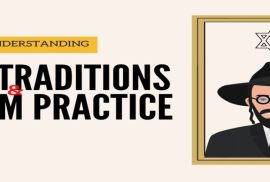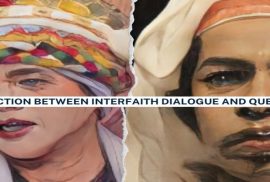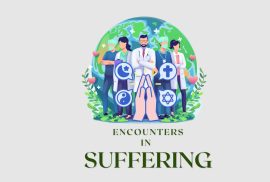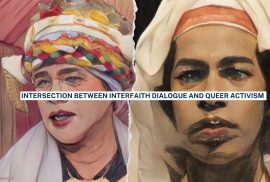May
Written by Johanes Koraag
Yogyakarta was once known as a city with a high level of tolerance, because, as a city of education, every year it receives students from various regions with diverse backgrounds. However, this situation has recently undergone a significant change. Events such as the refusal of non-Muslims to live in Muslim neighborhoods in Bantul, the destruction of Christian graves in Sleman, and the rise of exclusive boarding houses that only accept tenants with certain religions show that there has been a decline in the level of tolerance among the people of the Special Region of Yogyakarta. This certainly needs to be scrutinized, given special attention, and solutions sought in order to restore the image of Yogyakarta as a tolerant city.
Written by Athanasia Safitri
In Indonesian, Jewish and Judaism are translated the same as ‘Yahudi’ whereas Jewish ethnicity and religion are interrelated, and Judaism is the ethnic religion of the Jewish people. ICRS and CRCS of UGM, in collaboration with the American Jewish Committee (AJC) held a day workshop to introduce the basic principle of the Jewish tradition, religious practice of Judaism, and their community. Dr. Ari Gordon, the Director of Muslim-Jewish Relations at AJC, was invited to share the history of Judaism, the Jewish life and practice, and several contemporary issues in the Jewish world. The sessions included audio-visual material, traditional Jewish texts, and dialogue which allowed the participants to exchange questions and experiences.
Written by Athanasia Safitri
As much as it is sensitive to discuss queer[1] issues in our society, there is an academic need to address the new social reality and conduct related research. Getting an invite to talk about queer activism in relation to interfaith dialogue on the Wednesday Forum, Amar Alfikar is an Indonesian trans man activist whose work challenges religious-based queerphobia, as well as pushing queer-inclusive narratives in theology. He is the founder and director of IQAMAH (Indonesian Queer Muslim and Allies) and has been working for seven years to advocate queer-of-faith activism in Muslim contexts.
The concept of decolonization continues to develop alongside a growing understanding of the negative consequences of knowledge hegemony. Generally, established knowledge is considered as absolute truth, thereby hindering new scientific discoveries. Such knowledge is often regarded as the most authoritative and valid, therefore generating unidirectional knowledge and precluding the advancement of its various forms.
During a public lecture that took place on 17 March, 2023, at Universitas Gadjah Mada (UGM), Frans Wijesen remarked that in the discourse of decolonization studies, a sort of hegemonic knowledge emerges, which serves as a gauge of the truth of knowledge. Studies on Indonesian Islam tend to portray Christian Snouck Hurgronje (CSH) as an orientalist with a number of shadowy sides and detrimental effects on Indonesian Islam. As stated as well in Wijsen’s article published in Christian-Muslim Relations: A Bibliographical History entitled “Christian Snouck Hurgronje”, CSH has been portrayed by many researchers as a white man engaged in a great deal of intervention and manipulation of the Islamic reality. However, because there are numerous historical truths that have not been brought to light by studies that have been evolving to date, Wijsen is attempting to transmit a new perspective that sees CSH as an ordinary human being who has multiple identities. These identities led him to engage in numerous negotiations regarding his position as a scholar and advisor to the colonial administration.











